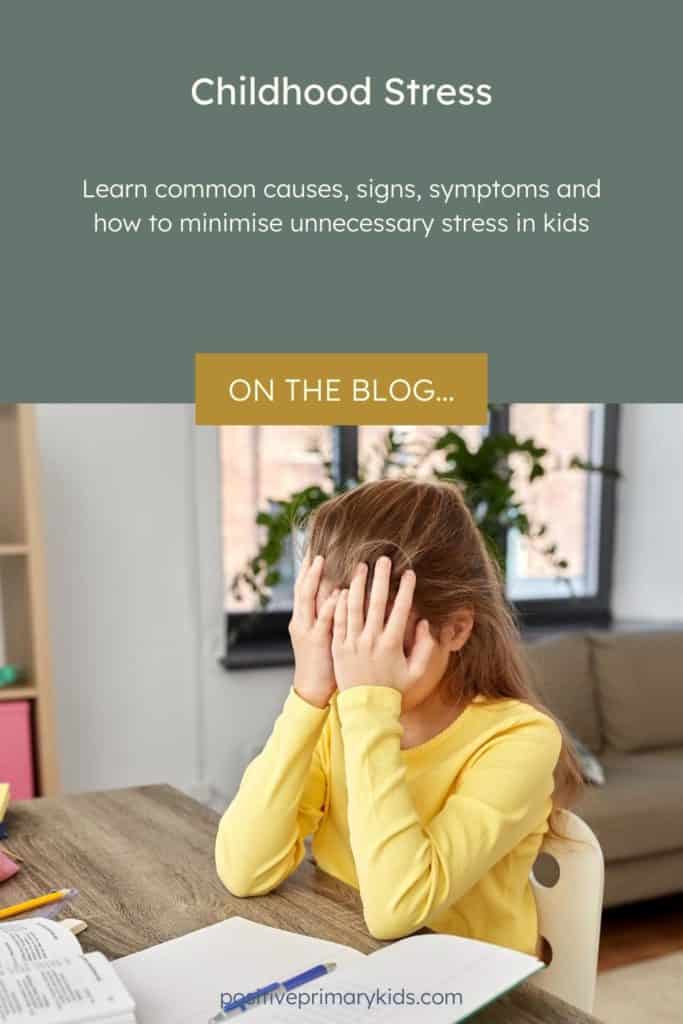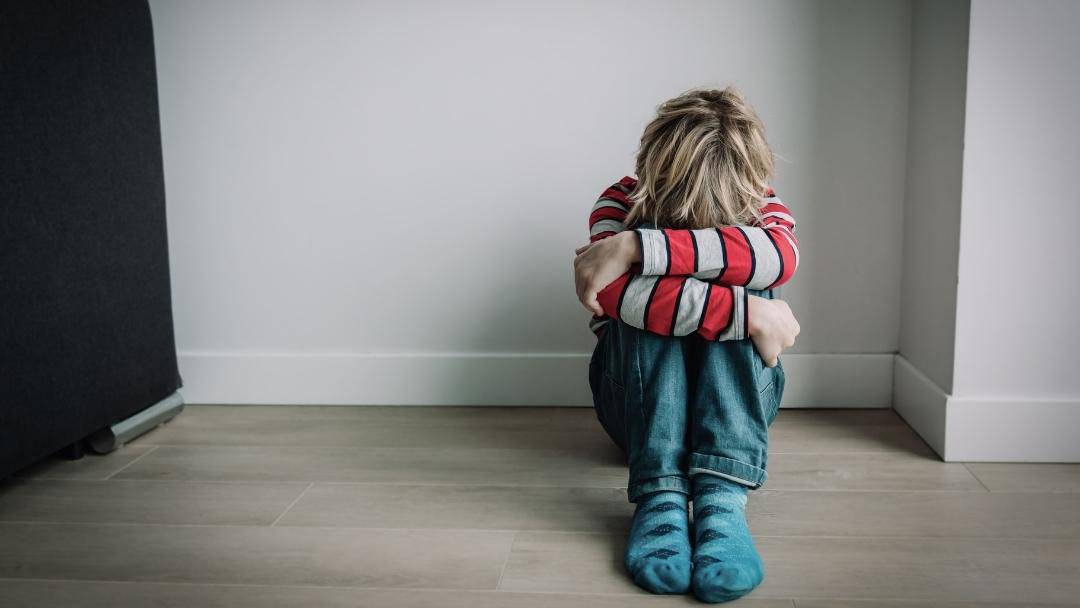Kids are experiencing higher rates of stress than previous generations did. After the last few years, it isn’t surprising that stress in childhood is on the increase.
Stress is a totally normal and necessary part of life. The real world is HARD! But if stress accumulates and kids don’t get a break from it or they don’t have the necessary coping skills it can impact their wellbeing and contribute to health problems.
In this second post of a series on childhood stress, we’ll take a look at the causes of stress in children, what the signs are and how we can minimize unnecessary stress.
Affiliate Disclosure: This post may contain affiliate links. This means that I may receive a small commision – at no cost to you – if you make a purchase through these links. Thank you for your support!
You can read the first post in this series here:
Common causes of stress in childhood
Some situations, such as the upheaval during the coronavirus pandemic, have the potential to cause anyone to experience stress at varying levels. But generally, something that causes one child to experience stress may not bother another at all.
Common situations that could cause stress (stressors) for different individuals include:
- Changes to their routine
- Changes at home
- Moving house
- Moving schools
- Change to the family structure
- Conflict between parents or family members
- Parental relationship breakdowns
- Parental substance abuse
- The arrival of a sibling
- Illness or hospitalisation of loved ones
- Bereavement
- Domestic violence and abuse
- Parental stress and mental health
- Peer pressure
- Bullying and social exclusion
- Events in the news
- Dehydration
- Poor nutrition
- Poverty
- Social media and ‘influencers’
- Academic pressure
- Unrealistic expectations from parents
- Feeling inadequate, unimportant or unappreciated
- An overly busy schedule
- Not enough downtime to relax and recharge
- Lack of quality sleep
- Insufficient exercise
- Excessive screen time
- Viewing disturbing content – on the internet or inappropriate TV/movies
The list could go on as there are countless potential stressors. Many stressors trigger a mild and manageable stress response that is completely harmless and easy to move on from. But when they start to stack up without a break, stress can become more difficult to deal with.

Signs and symptoms of stress in a child
Is there a difference between a signs and a symptom?
Although these terms are often used interchangeably, there is a difference between their definitions. They both describe some sort of effect or change in a person but the main difference depends on who observes that change.
Signs are the evidence of effects or changes that you notice in another person. On the other hand, symptoms are the internal effects or changes that are noticed by the person experiencing them.
Just as the situations that might cause stress are varied, how stress manifests in a child can be varied and unique to the individual.
Read on for common stress signs to look out for and symptoms that your child may experience:
Signs
- Extreme reactions to little things – explosions or meltdowns
- Appearing jumpy or easily frightened
- More clingy than usual
- Nightmares
- Bedwetting
- Changes in academic performance
- Negative self-talk (lots of “I can’t” or “I’m dumb” type statements)
- Increased time spent scrolling phones or internet
- Unusually grumpy or angry
- Becoming withdrawn or subdued
- Changes in eating or sleeping habits (eating/sleeping more or less than normal)
- Nailbiting, hair chewing or thumb-sucking
- Being more emotional or crying more often
- Disinterested in things they normally enjoy
- Trying to avoid particular people or situations
- School refusal
Symptoms
- Tummy aches
- Dizziness
- Headaches
- Pounding heart and raised heartrate
- Sweating
- ‘Butterflies’
- Tense muscles
- Aches and pains
- Upset stomach
- Muddled thinking and difficulty remembering and concentrating
- Restlessness
- Difficulty sleeping
- Constant worrying
How can I prevent or minimise childhood stress?
There is no way that you can prevent the impact of all sources of stress on your child. Nor should you try to! It would be completely impossible and quite damaging to your child.
Overprotected children often struggle with low self-esteem, fearfulness, decision-making and are poorly equipped to solve problems and face challenges.
Life is full of stressful events, large and small. Stress is our in-built danger response, so it’s really important in protecting us from hazardous situations. It’s our body’s signal for us to get ready or take action.
Without some stress, we’d feel bored and would have no motivation to get out of bed in the morning or do anything with our lives. We wouldn’t take on any challenges, learn anything new or have anything to focus on.
Having said that, it is important to keep the balance. Stress becomes a problem when there is too much of it, it’s too severe and it’s too frequent.
Rather than trying to anticipate and prevent potential stress, it is better to find ways to minimise unnecessary stress and learn coping strategies to manage it.
If you are frequently noticing signs of stress in your child and feel that they are not coping with it, try to think of ways stress can be limited.
A few questions to ask yourself: Are they getting enough sleep? Is their week jam-packed with after-school activities, or is there plenty of downtime where they can just relax and recharge? How are they getting on at school? Is something at school worrying them? Have they fallen out with friends? Be there to really listen – 100%. Often just talking through worries and knowing that they have someone to talk to is enough to reduce stress.
Just a few changes to your routine might be enough for kids to have a break from the stress and minimize negative symptoms.
To learn more about ‘good’ stress and ‘bad’ stress, take a look at the first post in this series:
If you just take one thing from this post…
Remember that stress is a normal part of life. It can be tempting to wrap children up in cotton wool to protect them from stress, but in the long run, that will do far more harm than good.
In the next post in this series, we will dive deep into exploring a range of techniques and ideas so you can help your child manage stress and they can regain control.
What are your best tips to help kids manage stress?
Do you have any tried and tested tips that have been successful for your kids?
Share them in the comments below to help out other readers who might be struggling!









0 Comments